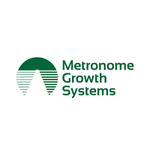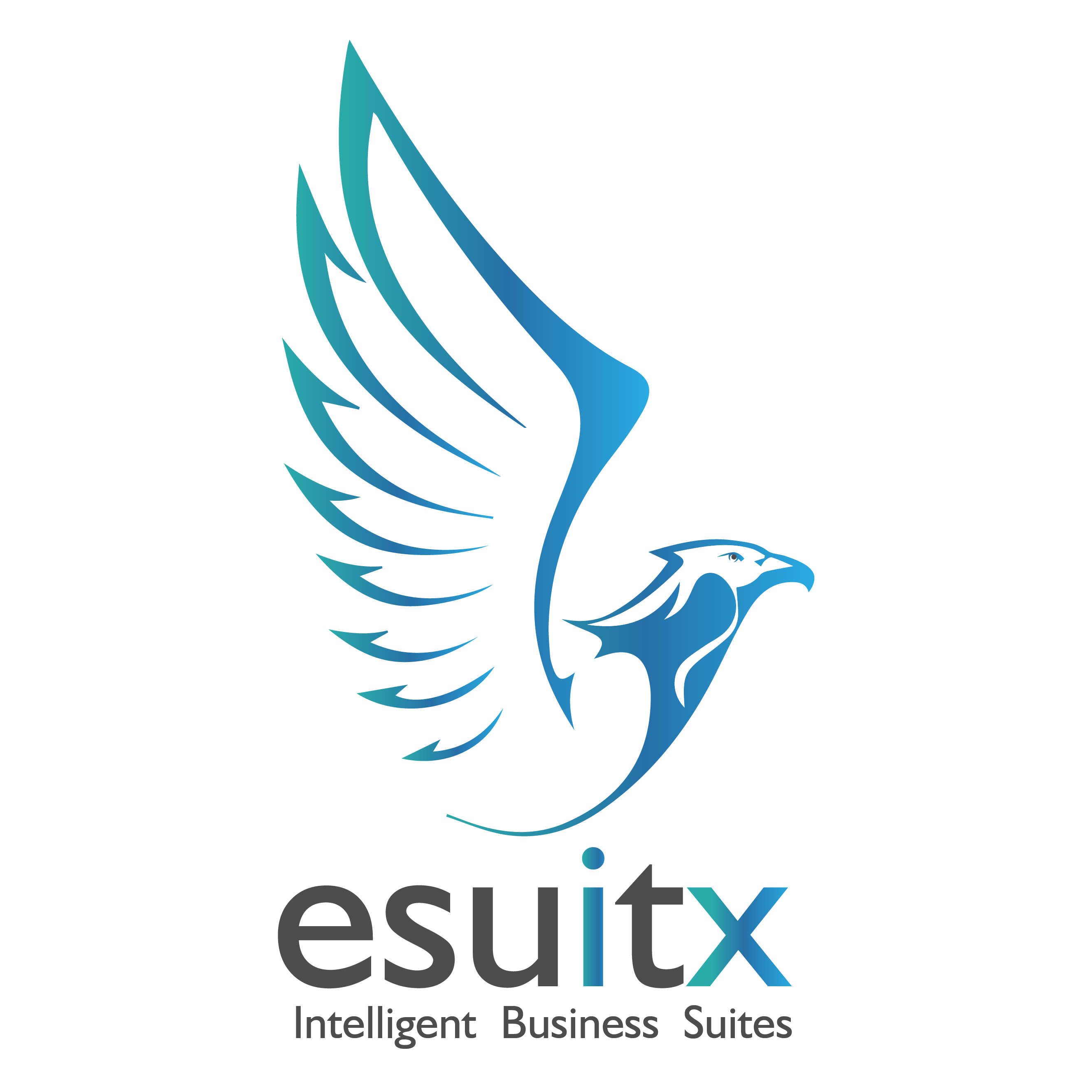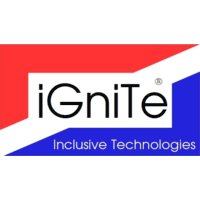Description

Ivy

Metronome Growth Systems
Comprehensive Overview: Ivy vs Metronome Growth Systems
Ivy and Metronome Growth Systems are both products that provide tools and services for business development, particularly in enhancing organizational growth and efficiency. Below is a comprehensive overview of their primary functions, target markets, market share, user base, and key differentiating factors:
a) Primary Functions and Target Markets
Ivy:
- Primary Functions: Ivy is primarily designed as an all-in-one solution for small to medium-sized businesses (SMBs) focusing on project management and customer relationship management (CRM). The platform offers features like invoicing, project tracking, client communication, and collaboration tools, making it particularly useful for industries such as interior design, architecture, and creative agencies.
- Target Markets: Ivy targets SMBs in creative fields where there is a strong need for robust project management and client engagement tools. Interior designers, in particular, are major users because of Ivy's ability to streamline design projects from conception to billing.
Metronome Growth Systems:
- Primary Functions: Metronome Growth Systems provides strategic execution and performance management solutions aimed at driving business growth. It offers tools for setting business goals, tracking performance metrics, and aligning team efforts with organizational objectives. Its platform supports methodologies like the Rockefeller Habits and the Scaling Up framework.
- Target Markets: The target market for Metronome Growth Systems includes medium to large businesses aiming to implement scalable growth strategies. It focuses on organizations looking to optimize performance management and ensure strategic alignment across their operations.
b) Market Share and User Base
-
Ivy: As a niche solution serving the creative industry, Ivy has gained a loyal user base among interior designers and small creative firms. Its market share is relatively small compared to broader project management and CRM tools like Salesforce or Asana but is significant within its targeted niche.
-
Metronome Growth Systems: This platform has a moderate market share, primarily among businesses actively seeking comprehensive growth frameworks and performance management tools. It competes with other growth-oriented platforms like OKR-driven solutions (e.g., BetterWorks) and broader enterprise solutions (e.g., SAP SuccessFactors).
c) Key Differentiating Factors
-
Customization and Industry Specificity: Ivy's key differentiator is its focus on the interior design industry. It offers tailored features that cater specifically to the needs of designers, such as project-specific billing, vendor management, and design-focused task tracking.
-
Strategic Growth Frameworks: Metronome Growth Systems differentiates itself by embedding strategic growth frameworks directly into its platform. It provides structured guidance and tools for businesses looking to execute high-level growth strategies systematically.
-
User Experience and Integration: Ivy is known for its user-friendly interface and easy integration with design software, making it accessible for its target user base. Metronome Growth Systems prioritizes deep integration with existing enterprise tools to enhance data-driven decision-making and strategic alignment.
Overall, while both Ivy and Metronome Growth Systems focus on enhancing business operations, their specific functionalities, target markets, and approach to differentiating themselves in the market are distinct, catering to different segments of the business growth landscape.
Contact Info

Year founded :
Not Available
Not Available
Not Available
Germany
Not Available

Year founded :
Not Available
Not Available
Not Available
Not Available
Not Available
Feature Similarity Breakdown: Ivy, Metronome Growth Systems
As of my last update in October 2023, "Ivy" and "Metronome Growth Systems" are both tools designed to support businesses in achieving growth and management efficiency, but they may cater to slightly different needs or approaches depending on their specific features. Here's a general comparison based on typical functions such solutions might have:
a) Core Features in Common
-
Goal Setting and Tracking:
- Both platforms likely offer features for setting business goals and tracking progress towards them. This is foundational for growth management tools.
-
Performance Metrics:
- Metrics tracking is a common feature, providing insights into business performance through various analytics and reporting tools.
-
Collaboration Tools:
- Shared workspaces, task assignments, and communication channels to facilitate team collaboration are typically featured in both systems.
-
Integration Capabilities:
- Both tools might include integrations with other popular business applications like CRM, financial software, or project management platforms to streamline processes.
-
Data Visualization:
- Shared features may include dashboards and visual reports that help translate data into actionable insights.
b) User Interface Comparison
-
Design and Usability:
- Both Ivy and Metronome Growth Systems likely strive for a user-friendly interface, but the approach may differ. Ivy might emphasize a more streamlined, minimalist UI for quick access to key features, while Metronome Growth Systems could focus on providing a more detailed, customizable interface to cater to businesses looking for in-depth analytics and control.
-
Navigation:
- Ease of navigation is crucial; both systems might offer intuitive layouts, but Ivy might lean towards faster task execution with fewer clicks, whereas Metronome could present a more complex structure allowing for deeper customization.
-
Mobile Accessibility:
- It’s common for such platforms to offer mobile app versions or responsive web apps, ensuring that users can access their tools on the go. The quality and depth of features available on mobile might vary slightly.
c) Unique Features
Ivy
-
AI-Driven Insights:
- If Ivy offers unique AI-driven suggestions or insights tailored to enhance growth strategies or decision-making, this could set it apart.
-
Industry-Specific Customization:
- Ivy may have specialized tools or templates for specific industries, which can provide a tailored experience.
Metronome Growth Systems
-
Scalability Solutions:
- Strong focus on features that support scaling businesses, such as advanced predictive analytics or growth modeling tools, may differentiate Metronome.
-
Leadership Coaching Tools:
- Unique features such as integrated leadership coaching modules or training resources to support management development.
Both Ivy and Metronome Growth Systems aim to assist businesses in managing growth effectively, but differences in user interface design and unique features can influence their suitability for various business types and growth strategies. Businesses should evaluate both systems based on their specific needs and how each platform aligns with their growth objectives. For the most accurate and up-to-date comparison, consulting current user reviews or demoing the products would be beneficial.
Features

Not Available

Goal Setting and Tracking
Team Collaboration
User Management
Strategic Planning
Performance Analytics
Best Fit Use Cases: Ivy, Metronome Growth Systems
Ivy and Metronome Growth Systems by Ivy.ai offer distinct tools tailored to varying business needs, making them suitable for particular use cases:
Ivy
a) Best Fit Use Cases for Ivy
- Customer Support Automation:
- Ideal for businesses across industries, particularly those with high customer inquiry volumes, such as e-commerce, travel, and tech support, where quick and efficient responses are paramount.
- Education Sector:
- Universities and educational institutions can use Ivy to handle student inquiries, provide information about courses, and support administrative tasks.
- Healthcare:
- Hospitals and clinics can implement Ivy for patient interactions, such as appointment scheduling, answering FAQs, and providing information about services.
- Enterprise and Large Organizations:
- Companies with substantial customer bases can leverage Ivy to enhance customer interaction and streamline support processes.
Metronome Growth Systems
b) Best Fit Use Cases for Metronome Growth Systems
-
Performance Management:
- Businesses looking to improve employee performance, management, and growth strategies will find Metronome beneficial. It helps track and measure key performance indicators effectively.
-
Strategic Planning:
- Ideal for companies needing assistance in implementing and tracking strategic business plans. It is useful for continuous improvement and aligning team goals with company objectives.
-
Scaling Operations:
- Perfect for growing businesses that need to formalize processes and ensure alignment as they scale. It aids in maintaining focus and driving results throughout growth phases.
-
Executive and Leadership Development:
- Organizations aiming to enhance leadership skills and develop executive capabilities will appreciate Metronome’s focus on growth systems and frameworks.
Industry Verticals and Company Sizes
Ivy
- Industries:
- Education, healthcare, retail, and service industries can significantly benefit from deploying Ivy’s AI chatbot solutions for customer engagement and operational efficiency.
- Company Sizes:
- Both SMEs (Small and Medium-sized Enterprises) and large corporations can utilize Ivy, though larger companies with higher interaction volumes might experience greater efficiency gains.
Metronome Growth Systems
- Industries:
- Applicable across most industries, particularly those with complex operational strategies such as tech companies, manufacturing, and consulting services.
- Company Sizes:
- Mid-sized to large enterprises that need structured growth management and performance tracking will gain the most from Metronome, especially those transitioning from start-up to scale-up phases.
In summary, Ivy is best suited for organizations looking to enhance customer experience through automation, particularly in high-interaction environments, whereas Metronome Growth Systems is tailored for companies focused on strategic growth, performance management, and operational excellence. Each product serves distinct needs, catering to various industry verticals and company scales.
Pricing

Pricing Not Available

Pricing Not Available
Metrics History
Metrics History
Comparing undefined across companies
Conclusion & Final Verdict: Ivy vs Metronome Growth Systems
To provide a thorough conclusion and final verdict for Ivy and Metronome Growth Systems, let's analyze each part systematically:
a) Best Overall Value
Best Overall Value Product: Determining the best overall value requires considering factors like cost, features, scalability, customer support, and user satisfaction. While Ivy may offer a seamless, user-friendly interface with core functionalities that cater well to small to medium-sized businesses, Metronome Growth Systems might provide a more robust set of features tailored to scaling businesses and those needing advanced analytics.
Verdict: If the priority is simplicity, cost-effectiveness, and ease of use for small to medium ventures, Ivy could be the best value. However, if your business demands comprehensive growth analytics, scalability, and advanced features, Metronome Growth Systems might offer better overall value despite potentially higher costs.
b) Pros and Cons
Ivy:
-
Pros:
- User-friendly with an intuitive interface.
- Affordable pricing, making it accessible for startups.
- Quick setup and minimal learning curve.
- Reliable basic features suitable for early-stage growth management.
-
Cons:
- May lack advanced features necessary for large-scale operations.
- Limited customization and integration capabilities compared to more complex systems.
- Could face scalability issues as businesses grow beyond a certain point.
Metronome Growth Systems:
-
Pros:
- Comprehensive feature set with advanced analytics.
- Excellent scalability for growing businesses.
- Strong integration options with other software and tools.
- Detailed performance metrics to enhance strategic planning.
-
Cons:
- Higher cost, which could be a barrier for smaller businesses.
- Steeper learning curve due to the complexity of available features.
- Potentially overwhelming for users seeking only basic functionalities.
c) Recommendations for Decision-Making
-
Assess Business Size and Needs:
- For small to medium businesses, especially those just starting or with a focus on cost-effectiveness, Ivy might be the more appropriate choice.
- For businesses anticipating rapid growth or needing detailed insights into their operations, Metronome Growth Systems is likely the better choice.
-
Consider Budget Constraints:
- If budget is a primary concern, weigh the costs against the necessary features to ensure you do not over-invest in capabilities you might not use.
-
Think About Long-term Growth:
- Anticipate future requirements; if expecting significant growth soon, investing in Metronome initially might prevent the hassle and costs of migrating systems later.
-
Trial and Feedback:
- Both systems may offer trials or demos. Engage with these opportunities and gather feedback from intended users to better understand which system meets your operational ethos.
Final Verdict: The choice between Ivy and Metronome Growth Systems should align with the business' current stage, budget capacity, and future growth plans. While Ivy is ideal for simplicity and cost-effectiveness, Metronome Growth Systems shines in environments where data-driven insights and scalability are crucial. Evaluating both options against company needs will ensure a strategic choice that maximizes business value.
Add to compare
Add similar companies



